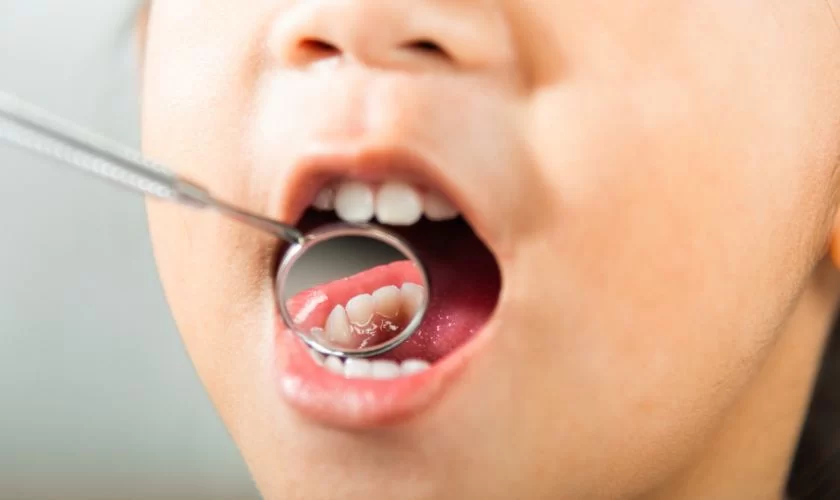
How to Prevent Cavities from Forming: Tips and Strategies for Healthy Teeth
- Understanding Cavities and Tooth Decay
- Daily Habits to Prevent Cavities
- The Role of Nutrition in Cavity Prevention
- Why Regular Dental Checkups Matter
- Products That Help Prevent Cavities
Understanding Cavities and Tooth Decay
Cavities, also known as dental caries, are holes that form in your teeth due to tooth decay. This decay is caused by bacteria in your mouth breaking down sugars in food and drinks, producing acids that attack tooth enamel. Over time, these attacks weaken the enamel and cause cavities to form. Without proper prevention, cavities can progress and lead to more serious dental issues, including infections and tooth loss.
The good news is that cavities are preventable with the right care and habits. By understanding how cavities develop, you can take proactive steps to protect your teeth and keep them healthy for years to come.
Daily Habits to Prevent Cavities
Your daily oral hygiene routine is the first line of defense against cavities. Brushing your teeth at least twice a day with fluoride toothpaste helps remove food particles and plaque that can lead to tooth decay. Don’t forget to floss daily, as flossing cleans between your teeth where a toothbrush can't reach.
Another important habit is rinsing with mouthwash after brushing. An antibacterial mouthwash can help reduce plaque buildup and kill harmful bacteria in your mouth. Make sure to brush your teeth for two minutes each time, and use a soft-bristled toothbrush to avoid damaging your enamel.
Additionally, avoid over-brushing your teeth, as this can wear down enamel and lead to sensitivity. Instead, focus on brushing gently and consistently throughout the day.
The Role of Nutrition in Cavity Prevention
What you eat plays a significant role in cavity prevention. Sugary foods and drinks are the main culprits in cavity formation, as they feed harmful bacteria that produce enamel-damaging acids. Reducing your intake of sugary snacks, sodas, and sticky foods can help minimize the risk of cavities.
On the other hand, a diet rich in calcium and vitamin D can strengthen your teeth. Foods like dairy products, leafy greens, and fortified cereals help protect and remineralize tooth enamel. Drinking plenty of water also helps wash away food particles and neutralize acids in your mouth, further reducing your risk of cavities.
Remember, moderation is key. While it’s okay to enjoy a sweet treat now and then, it’s important to brush your teeth afterward and maintain a healthy overall diet.
Why Regular Dental Checkups Matter
Even with excellent oral hygiene habits, regular dental checkups are essential in preventing cavities. A dentist can spot early signs of decay and provide treatments such as fluoride applications or dental sealants to protect vulnerable areas of your teeth. They can also professionally clean your teeth, removing plaque and tartar buildup that regular brushing might miss.
Visiting your dentist at least twice a year ensures that any potential dental issues are caught early and treated before they become more serious. Early intervention can save you time, money, and discomfort in the long run.
Products That Help Prevent Cavities
In addition to daily brushing and flossing, using dental products specifically designed to prevent cavities can make a big difference. Toothpastes with fluoride strengthen enamel and protect against decay. Fluoride mouth rinses can also offer extra protection by helping to remineralize your teeth.
Dental sealants are another effective product to consider. These are thin coatings applied to the chewing surfaces of your back teeth, where cavities are most likely to form. Sealants act as a barrier to food and bacteria, preventing decay from setting in.
When choosing products for cavity prevention, look for those with the American Dental Association (ADA) seal of approval, as they have been tested for effectiveness and safety.
If you're serious about protecting your teeth and preventing cavities, incorporating these habits and products into your daily routine can make a significant difference. Start by choosing the right toothpaste, maintaining a balanced diet, and scheduling regular dental visits. If you want to learn more about products that can protect your teeth, visit our online store for recommended dental care solutions designed to keep cavities at bay.







 Cherry Valley Dental4.0 (115 review)
Cherry Valley Dental4.0 (115 review) Neighborhood Family Dentistry2.0 (16 review)
Neighborhood Family Dentistry2.0 (16 review) Northside Dental Clinic4.0 (281 review)
Northside Dental Clinic4.0 (281 review) Lakeview Dental PC4.0 (29 review)
Lakeview Dental PC4.0 (29 review) East Brunswick Family Dental4.0 (679 review)
East Brunswick Family Dental4.0 (679 review) Lisa Konz Dental Care4.0 (61 review)
Lisa Konz Dental Care4.0 (61 review) The Importance of Oral Health Education During Pregnancy for a Healthy Pregnancy
The Importance of Oral Health Education During Pregnancy for a Healthy Pregnancy Best Tips for Brushing Your Teeth Properly for Healthy Gums: Essential Techniques for Oral Health
Best Tips for Brushing Your Teeth Properly for Healthy Gums: Essential Techniques for Oral Health Why Skipping Dental Checkups Can Lead to Bigger Oral Health Problems
Why Skipping Dental Checkups Can Lead to Bigger Oral Health Problems Advantages of Porcelain Dental Restorations
Advantages of Porcelain Dental Restorations How Can Diabetes Cause Tooth and Gum Problems? Preventing and Managing Oral Health Issues
How Can Diabetes Cause Tooth and Gum Problems? Preventing and Managing Oral Health Issues Healthy Habits for Promoting Good Oral Health and Hygiene: Tips for a Healthy Smile
Healthy Habits for Promoting Good Oral Health and Hygiene: Tips for a Healthy Smile